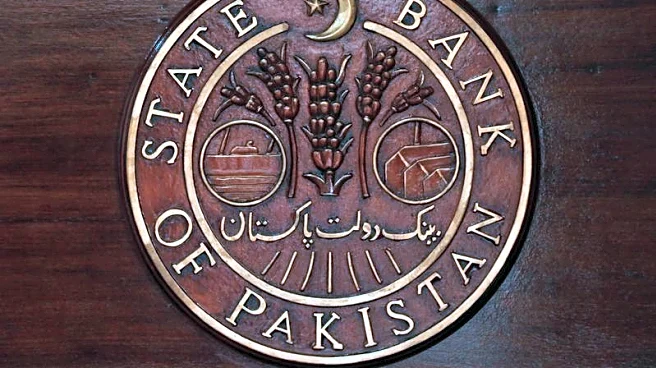By Ariba Shahid and Asif Shahzad
KARACHI (Reuters) -Pakistan's central bank kept its key interest rate unchanged at 11% on Monday, it said on its website, a fourth straight hold, as recent floods had a milder-than-expected
impact on crops and inflation while growth and reserves continued to improve.
The State Bank of Pakistan said the policy decision aimed to maintain price stability as earlier rate cuts continue to work through the economy.
All 10 analysts surveyed had expected the central bank to hold the policy rate steady.
The bank said the overall macroeconomic outlook has improved since its last meeting, with better-than-expected crop yields, stronger industrial activity, and a rebound in high-frequency indicators.
It revised up its gross domestic product forecast for fiscal year 2026, which ends in June, to the upper half of its earlier 3.25–4.25% range.
INFLATION RISKS EASING
The central bank expects inflation to stay above its 5–7% target range for a few months in the second half of the current fiscal year, before easing within that range in the next fiscal year.
It cited risks from volatile global commodity prices, future energy price adjustments, and uncertainty around wheat and perishable food prices.
The bank said Pakistan's post-flood rehabilitation spending was likely to be met through budgeted resources, and urged continued fiscal discipline to meet balance targets and ensure long-term sustainability.
That marks a shift from September, when the bank warned that floods could push inflation above its 5–7% target.
Headline inflation rose to 5.6% in September from 3.6% in August after floods hit crops, while border disruptions with Afghanistan are expected to weigh on the next reading.
RESERVES, OUTLOOK IMPROVE
The central bank added that the current account deficit is expected to remain within the 0–1% of GDP range in fiscal 2026, with the realization of official inflows projected to raise foreign exchange reserves to $15.5 billion by December 2025 and around $17.8 billion by June 2026.
Having lowered rates by 1,100 basis points since June 2024, when they peaked at 22%, the SBP has held steady through its last four meetings, with the most recent cut in May.
(Reporting by Ariba Shahid in Karachi and Asif Shahzad in Islamabad; Editing by Alasdair Pal and Jan Harvey)










